
Many studies are finding the existence of microplastics everywhere in the environment and in our bodies. Microplastics occur when plastic items degrade over time. A recent study confirmed that drinking from plastic water bottles is a major source of the microplastics and nanoparticles that we ingest.
Microplastics are 1 µm to 5 mm in size and nanoplastics are even smaller (less than 1 µm). They are usually invisible to the naked eye.
Study researchers did a review of over 141 studies and concluded that the average person ingests 39,000 to 52,000 microplastics each year, and those who drink bottled water ingest about 90,000 more particles than persons only drinking tap water.
Research on long-term health impacts (if any) of ingesting and breathing in microplastics and nanoparticles is just starting, but what has been done is concerning - at a minimum they are causing inflammation in our bodies. Other research suggests numerous health effects (e.g., respiratory issues, reproductive problems, disruption of the immune system).
Bottom line: buy, drink, and store as beverages in glass bottles, and drink tap water. Avoid single-use plastic water bottles.
From Phy.org: Chronic risks from single-use plastic water bottles are dangerously understudied, says study
The sun-drenched paradise of Thailand's Phi Phi islands isn't the usual starting point for a Ph.D. But for Sarah Sajedi, those soft, sandy beaches—or rather, what she found under them—inspired her pivot from a business career to an academic one. ...continue reading "Bottled Water A Major Source of Microplastics and Nanoparticles"



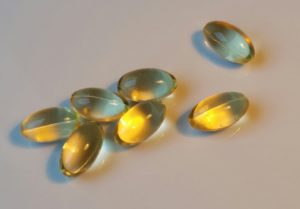 For years the medical advice has been that when taking vitamin D supplements, make sure it is the vitamin D3 form and not vitamin D2. The reasons given are that vitamin D3 is absorbed better and has more health benefits. A recent
For years the medical advice has been that when taking vitamin D supplements, make sure it is the vitamin D3 form and not vitamin D2. The reasons given are that vitamin D3 is absorbed better and has more health benefits. A recent 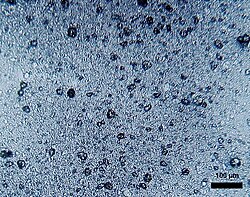
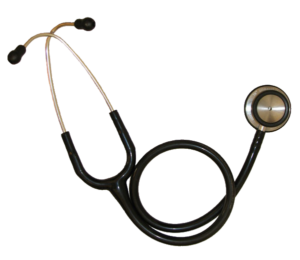 It's what many suspected. Once private equity firms take over a hospital, patient care suffers.
It's what many suspected. Once private equity firms take over a hospital, patient care suffers. The evidence keeps piling up that certain foods are associated with health, while other foods (e.g., soda, ultra processed foods) are associated with chronic diseases. A recent article reported the results of
The evidence keeps piling up that certain foods are associated with health, while other foods (e.g., soda, ultra processed foods) are associated with chronic diseases. A recent article reported the results of 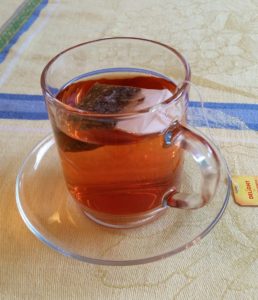 There is strong evidence certain plant compounds (flavan-3-ols, also known as flavanols or catechins) in these foods have beneficial effects on cardiovascular health. These compounds can lower blood pressure and improve endothelial function (functioning of the blood vessels). Two to three cups of tea daily! One to two servings of dark chocolate daily! Instead of chips for a snack, have an apple.
There is strong evidence certain plant compounds (flavan-3-ols, also known as flavanols or catechins) in these foods have beneficial effects on cardiovascular health. These compounds can lower blood pressure and improve endothelial function (functioning of the blood vessels). Two to three cups of tea daily! One to two servings of dark chocolate daily! Instead of chips for a snack, have an apple.
 Once again, a chemical banned in Europe (due to possible health harms) is allowed to be used in the US. The chemical TPO, which is used in nail polish gels, is viewed as "carcinogenic, mutagenic, or toxic for reproduction". In other words, could cause cancer and impact fertility.
Once again, a chemical banned in Europe (due to possible health harms) is allowed to be used in the US. The chemical TPO, which is used in nail polish gels, is viewed as "carcinogenic, mutagenic, or toxic for reproduction". In other words, could cause cancer and impact fertility.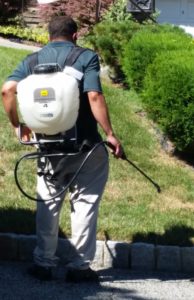 Millions of pounds of pesticides are used each year in the US: on farms, in buildings and homes, on lawns, in pet flea and tick products - basically everywhere. And so the pesticides eventually wind up in us - from the foods we eat, the water we drink, the air we breathe (when pesticides drift during applications or when used indoors), and the treated lawns and ground we walk on.
Millions of pounds of pesticides are used each year in the US: on farms, in buildings and homes, on lawns, in pet flea and tick products - basically everywhere. And so the pesticides eventually wind up in us - from the foods we eat, the water we drink, the air we breathe (when pesticides drift during applications or when used indoors), and the treated lawns and ground we walk on.